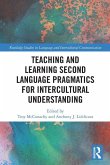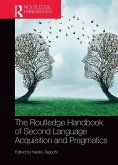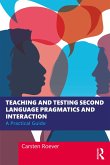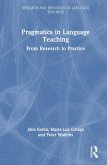An understanding of sociocultural context is crucial in second language learning-yet developing this awareness often poses a real challenge to the typical language learner.
This book is a language teachers' guide that focuses on how to teach socially and culturally preferred language for effective intercultural communication. Moving beyond a purely theoretical approach to pragmatics, the volume offers practical advice to teachers, with hands-on classroom tasks included in every chapter.
Readers will be able to:
· Understand the link between language use, linguacultural diversity, and multilingual identity
· Identify possible causes of learner errors and choices in intercultural communication
· Understand applied linguistics theories that support culturally sensitive classroom practices
· Develop a pragmatics-focused instructional component, classroom-based assessments, and curricula
· Help learners to become more strategicabout their learning and performance of speech acts
· Incorporate technology into their approach to teaching pragmatics
This book aims to close the gap between what research in pragmatics has found and how language is generally taught today. It will be of interest to all language teachers, graduate students in language teaching and linguistics, teacher educators, and developers of materials for teaching language.
This book is a language teachers' guide that focuses on how to teach socially and culturally preferred language for effective intercultural communication. Moving beyond a purely theoretical approach to pragmatics, the volume offers practical advice to teachers, with hands-on classroom tasks included in every chapter.
Readers will be able to:
· Understand the link between language use, linguacultural diversity, and multilingual identity
· Identify possible causes of learner errors and choices in intercultural communication
· Understand applied linguistics theories that support culturally sensitive classroom practices
· Develop a pragmatics-focused instructional component, classroom-based assessments, and curricula
· Help learners to become more strategicabout their learning and performance of speech acts
· Incorporate technology into their approach to teaching pragmatics
This book aims to close the gap between what research in pragmatics has found and how language is generally taught today. It will be of interest to all language teachers, graduate students in language teaching and linguistics, teacher educators, and developers of materials for teaching language.








